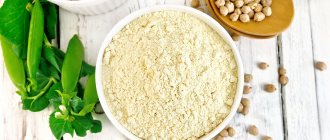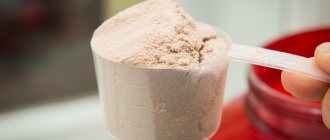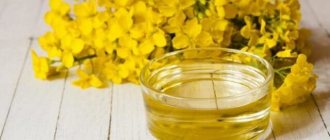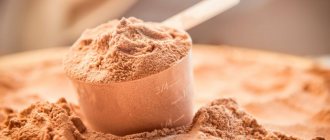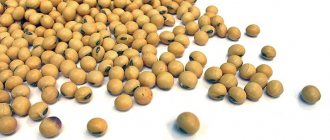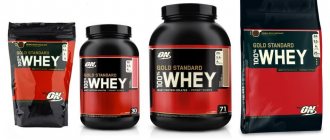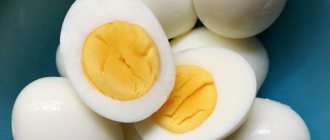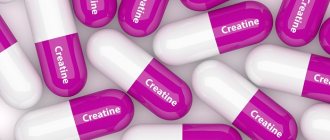This article was prepared by our beloved partners - the #GMfood - an online store of superfoods and craft eco-products.
Just for registering in the store you will receive 300 rubles to your personal bonus account and 2 more interesting gifts (Grab your gifts here)In the store's assortment you will find not only superfoods, but also healthy sweets, breakfasts, herbal teas, peanut butter, master classes for body health and facial beauty, and this is only a small part of the goodies and benefits!
Subscribe to Instagram #GMfood using this link and regularly receive new PP recipes with superfoods, see useful guides to the world of proper nutrition, and also look for gifts hidden under the link in the profile!
What is soy protein used for?
Soy protein is needed to replenish the required amount of protein in the body. A lack of protein in athletes can lead to the destruction of muscle mass, which is why they add protein shakes to their diet.
The protein intake rate for an adult is 1.5 g per 1 kg of weight. When added to the diet, the protein is absorbed like regular protein. It is broken down into amino acids, which enter the blood, nourish the muscles and restore them. At the same time, they help restore the hormonal and immune systems.
Application for weight loss
The effective effect of soy protein on body fat with minimal harm to the body has been confirmed by several scientific works. For weight loss, low-fat drinks prepared with it are recommended, if possible without any additional components, so as not to increase calorie content. An increased effect was noticed when taking soy isolate together with whey protein complexes, amino acid supplements, L-carnitine and other “fat burners”.
Important! Don't rely entirely on soy protein. As part of a weight loss program, sports activities (running, cycling, skiing, aerobic exercise) or simply physical activity must be present, plus you should not forget about proper nutrition.
Soy protein - what is it?
Soy protein is a protein isolated from the fruit of the legume plant - soybean.
It is the most popular plant protein. This is one of the most common types of sports nutrition. Used as a supplement to the protein requirement in the diet.
Protein is an ordinary protein, an organic substance that takes part in the metabolic process and the formation of new cells. It is used as a building block for building muscle tissue and burning fat. It has a low cost and is used in bodybuilding.
Its goal is to compensate for protein deficiency, i.e. obtaining from food the set of amino acids necessary for the body. In this case, it is necessary to consider the purpose for which the protein is used:
- To increase muscle mass;
- Losing weight;
- Improvements in general condition;
- Fast recovery after training.
Sources of protein are legumes, nuts, eggs, milk, meat.
A fitness trainer or nutritionist will help you choose the right protein structure.
Let's talk about the dangers of the product
Before consuming dietary supplements from Chinese oil peas, it is important to consider that almost all of them are genetically modified. Some scientists believe that the inclusion of such products in the diet can cause certain mutations in organs and provoke cancer.
However, this applies to many food additives that are even added to baby food. For example, scientists cannot give a definitive answer on the presence of monosodium glutamate in the diet: is it harmful or not. This flavor enhancer is used by many world leaders in food production, including the famous Croatian concern Podravka.
So, how can plant protein be harmful to us? Some athletes fear the harmful effects of estrogens on the body - analogues of female hormones, which in significant quantities can provoke an increase in adipose tissue. They are unacceptable for strength athletes and bodybuilders. However, such assumptions lack scientific confirmation.
Please note: Excessive consumption of legumes can accelerate puberty in girls and slow it down in boys. According to some data, oil peas accelerate the aging of the body, provoke cerebral circulation disorders, and suppress fermentation processes.
Also, the concentrate has low biological activity, does not maintain an optimal level of nitrogen in the circulatory system, and does not stimulate the process of protein production.
Types of soy protein
According to the degree of absorption, proteins are divided into fast and slow.
Depending on production, protein can come in different forms:
- Isolate;
- Concentrate;
- Hydrolyzate.
The isolate is of the highest quality, because Maximum purified from fats, carbohydrates and other impurities.
Protein is obtained from whey, meat, eggs, and soy. This is pure protein, which is obtained from the products we are used to.
For example, when milk is curdled, whey is obtained, which is pasteurized, filtered, the resulting whey protein is dried and the finished protein is obtained.
Each protein has different properties and is selected depending on specific goals - to increase muscle mass or lose weight.
Properties of soy protein
Due to its low fat and sugar content, protein is considered a dietary product that is beneficial for the cardiovascular system. It helps reduce cholesterol levels and normalize blood sugar. Increases immunity, helps reduce fat mass, reduces appetite.
It is an excellent alternative for those who want to build muscle mass. Its use increases endurance and accelerates recovery after physical exertion.
Good Alternative Plant Based Supplement
Research on soybeans continues. Some studies (but really, in what field of research is this not the case?) show conflicting findings, and soy—due to its purported estrogenicity and its production methods—is a polarizing and controversial topic among athletes and nutritionists. That being said, soy protein clearly provides benefits - it is an inexpensive, nutritious protein that stimulates protein synthesis and facilitates muscle growth. It is a good alternative to animal proteins, or other less effective plant protein supplements. This great protein powder is suitable for vegans or those who don't like dairy.
Its composition
Soy protein contains:
- Cellulose;
- Iron;
- Calcium;
- Zinc;
- Omega – 3 and Omega – 6;
- Vitamins E, group B;
- Saponins.
Saponins are complex nitrogen-free organic compounds of plant origin.
Widely distributed in nature. They are found in various parts of plants - leaves, flowers, fruits, stems, roots.
Source Wikipedia
Protein is rich in substances - isoflavones, which help normalize blood pressure, lower cholesterol levels, and reduce the risk of osteoporosis.
Although the anabolic effect of soy protein is lower than that of whey protein, it prevents muscle breakdown and catabolism.
Benefit
The benefit of soy protein is to replenish the body's need for protein and provide adequate nutrition for skeletal muscles.
Protein foods contribute to:
- Normalization of insulin production;
- Acceleration of metabolic processes;
- Cleansing the body of toxins;
- Strengthening immunity;
- Improving the condition of hair, bones, nails.
Doctor says
Anastasia Mertsalova
The combined opinion of doctors on this issue
The diet should include 60% of food of plant origin, 30% of animal origin and 10% of grains.
Benefits of Soy Protein
Despite the existing disadvantages, soy protein has undeniable advantages:
- Low cost. The average price of 1 kg of soy protein usually does not exceed $3;
- Regulates hormonal levels in women;
- There is no lactose, so consuming soy protein does not cause gastrointestinal irritation;
- Contains fiber, which helps normalize the digestive process;
- Improves kidney function;
- Normalizes blood sugar levels and thyroid function;
- Promotes the production of thyroid hormones that burn fat.
It is an ideal source with a complete set of amino acids for vegetarians; it replaces animal proteins.
In addition, it is suitable for people suffering from lactose intolerance. Helps satisfy hunger without harm to health, does not contain excess fats and carbohydrates. It is quickly absorbed and does not cause digestive problems.
Is it good for women?
Everyone needs protein - both men and women. Soy protein is absolutely harmless to the female body and can be taken without fear in the dosage indicated by the manufacturer on the packaging.
Women are recommended to consume protein in the following cases:
- When playing professional sports;
- With regular intense physical activity;
- To build muscle mass during strength training with heavy weights;
- If there is a shortage of protein;
- If necessary, increase weight due to muscle mass.
If you follow a diet, its benefits are obvious: good taste and good digestibility of protein, low calorie content, ease of storage and preparation.
Protein can be harmful only in a few cases:
- If the dosage is chosen incorrectly. One serving of protein should contain approximately 25–30 grams. Exceeding the dosage may adversely affect the functioning of the kidneys and digestive system;
- Consumption of low-quality or expired product;
- In case of individual intolerance.
Soy protein for weight loss
Protein is taken not only to gain muscle mass, but also to reduce fat tissue. It effectively burns fat, helps reduce appetite and is suitable as a low-calorie snack, helping to reduce daily calorie intake.
But you don’t have to use it just to lose weight if you don’t exercise. And you should not consider it as a panacea for the fight against excess weight. After all, weight loss will depend on what foods a woman eats and how much she eats during the day.
When used correctly, you can get an excellent result in the form of a slim, toned figure.
Who should limit consumption?
Be sure to keep in mind that soy protein, the benefits or harm of which is at the center of ongoing debates on proper nutrition, has contraindications. It should not be given to children under 12 years of age and should not be used by women who are breastfeeding.
Chinese oil peas should be consumed with extreme caution in the 1st and 3rd trimester of pregnancy (the presence of hormone-like substances is dangerous for the formation of the fetus), with a tendency to form stones in the kidneys, as well as with various endocrine disorders.
Soy protein for men
Men require more protein than women. Its need depends on gender, body weight, age, and physical activity.
The protein requirement for an adult man is 56 g, for women – 48 g. A professional athlete needs more protein. If for an ordinary person the norm is set at 0.8 g per 1 kg of weight, then for an athlete it is 1 - 2 g per 1 kg of body weight.
Soy protein contains a large amount of isoflavones, which help reduce testosterone levels. Therefore, its long-term use can negatively affect potency.
But it is impossible to say unequivocally that soy protein is harmful for men. When used correctly, the body is saturated with nutritional and vital elements. It helps restore the muscular system, has a beneficial effect on the cardiovascular system and the entire body as a whole.
Sources[edit | edit code]
- Phillips SM, Tang JE, Moore DR. The role of milk- and soy-based proteins in supporting muscle protein synthesis and muscle protein accretion in young and elderly persons. J Am Coll Nutr. 2009 Aug;28(4):343-54.
- Tang JE, Moore DR Ingestion of whey hydrolysate, casein, or soy protein isolate: effects on mixed muscle protein synthesis at rest and following resistance exercise in young men. J Appl Physiol. 2009 Sep;107(3):987-92. Epub 2009 Jul 9.
- Douglas Kalman, Samantha Feldman. Effect of protein source and resistance training on body composition and sex hormones. J Int Soc Sports Nutr. 2007; 4:4.
- Acheson KJ, Blondel-Lubrano A. Protein choices targeting thermogenesis and metabolism. Am J Clin Nutr. 2011 Mar;93(3):525-34. Epub 2011 Jan 12.
- Veldhorst MA, Nieuwenhuizen AG, Dose-dependent satiating effect of whey relative to casein or soy.Physiol Behav. 2009 Mar 23;96(4-5):675-82.
- Goodin, Susan et al. (2007). "Clinical and Biological Activity of Soy Protein Powder Supplementation in Healthy Male Volunteers." Cancer Epidemiology Biomarkers & Prevention 16(4):829–33. doi:10.1158/1055-9965.EPI-06-0882. PMID 17416779.
- Kalman D et al. (2007-07-23). "Effect of Protein Source and Resistance Training on Body Composition and Sex Hormones." J Int Soc Sports Nutrition 4(1): 4. doi:10.1186/1550-2783-4-4. PMC 1997115. PMID 17908338.
- Hamilton-Reeves JM, Vazquez G. Clinical studies show no effects of soy protein or isoflavones on reproductive hormones in men: results of a meta-analysis. Fertil Steril. 2010 Aug;94(3):997-1007. Epub 2009 Jun 12.
- Siepmann T, Roofeh J. Hypogonadism and erectile dysfunction associated with soy product consumption. Nutrition. 2011 Jul-Aug;27(7-8):859-62. Epub 2011 Feb 25.
Reviews from real people
What do people think about soy protein?
Feedback on the forum
Feedback on the forum
Feedback on the forum
Feedback on the forum
In fact, there are a lot of reviews and mostly they are all positive.
